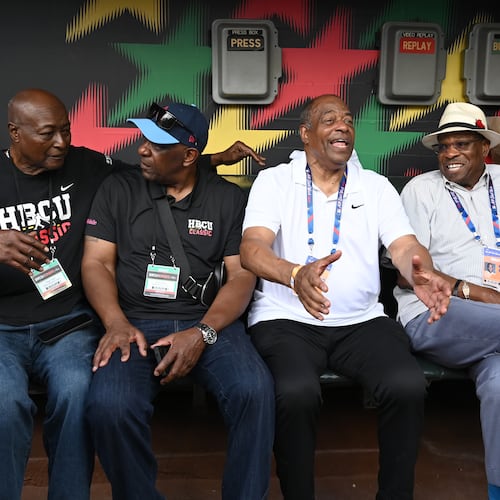The Braves took more economic hits from the coronavirus pandemic in the July-through-September quarter, according to financial results disclosed Thursday by team owner Liberty Media.
With a shortened schedule and no fans in the stands at Truist Park, the Braves' revenue for the third quarter declined 48%, falling to $110 million from $212 million in the same period last year.
“We, like many others in the baseball world, suffered a lot from the lack of in-person fans at events,” Liberty Media president and CEO Greg Maffei said on a conference call with investment analysts Thursday. “But I think credit to our management team for making the great adjustments that they did to sustain the business and keep fan interest up.”
The quarterly financial results, while an improvement over those disclosed earlier for the April-through-June period, did nothing to alter expectations that many MLB teams, including the Braves, are likely to reduce spending on players during the offseason.
“The reality is baseball lost a lot of money this year, and unless fans are in the seats next year, it will be a challenging business as well,” Maffei said. "The long-term reality must be that if there is not as much revenue coming in, it’s likely to put pressure on what teams can pay for players. That just seems like an economic fact.
“I’m sure that will cause tensions, because players want to get paid as much as they can, understandably. But teams are only going to have ‘x’ amount of resources. So I think there will be challenges around that, and we’ll see what happens.”
The Braves’ operating profit before depreciation and amortization -- a common measure of a pro sports franchise’s economic performance -- declined 87% in the July-through-September quarter, sinking to $6 million from $46 million in the corresponding period in 2019.
After including depreciation, amortization and stock-based compensation, the Braves showed an operating loss of $15 million for the quarter, compared to a profit of $23 million in the same period in 2019.
Although the delayed and abbreviated 2020 season began in late July, the absence of fans from the stands meant such revenue streams as ticket sales, concessions and the like remained shut off. The Braves' third-quarter revenue came mostly from local and national broadcast rights, sponsorships and various shared MLB income streams. The Braves also generated $8 million in revenue during the quarter from The Battery Atlanta, primarily from rental income, $1 million less than in the same period last year.
While the team’s overall revenue was down sharply, its operating expenses also were down. That largely was because player salaries were prorated to reflect the shorter season and because game-day costs were lower. The Braves also have had pay cuts and widespread layoffs on the baseball operations and business sides of the organization.
The Braves carried $714 million in debt as of Sept. 30, down slightly from $718 million three months earlier, according to Liberty Media.
The team had liquidity of $260 million as of Sept. 30 in cash, cash equivalents and revolving credit capacity, Liberty said.
Earlier this year, the Braves reported operating losses of $51 million before depreciation and amortization for January through June. For the April-through-June quarter, during which no games were played, the Braves had a 95% drop in revenue (from $208 million to $11 million) and an operating loss of $26 million before depreciation and amortization.
Through the first nine months of the year, the Braves' revenue was down a total of $299 million, compared to the same point last year.
Liberty Media signaled that the Braves' fourth-quarter financial results, which will be released early next year, won’t benefit from the team’s postseason run. The Braves “do not expect to generate material revenue associated with the postseason given the structure of the MLB playoffs to accommodate COVID safety protocols," the company said. But the team “will incur modest expense due to travel and other associated costs" in October.
Despite the financial results, Maffei said the Braves had an “amazing season” on the field by winning the National League East for a third consecutive season and reaching the seventh game of the NL Championship Series before being eliminated by the eventual World Series-champion Los Angeles Dodgers.
“It was sad to see it end before we got to the World Series,” Maffei said, “but we are confident that the future is bright for our team.”
About the Author
Keep Reading
The Latest
Featured


